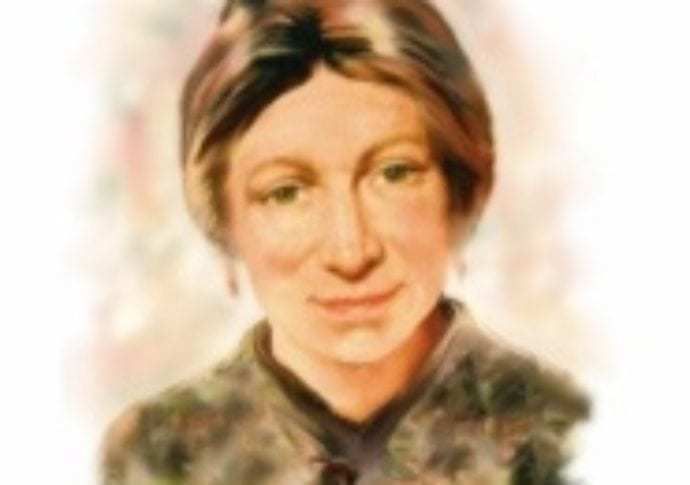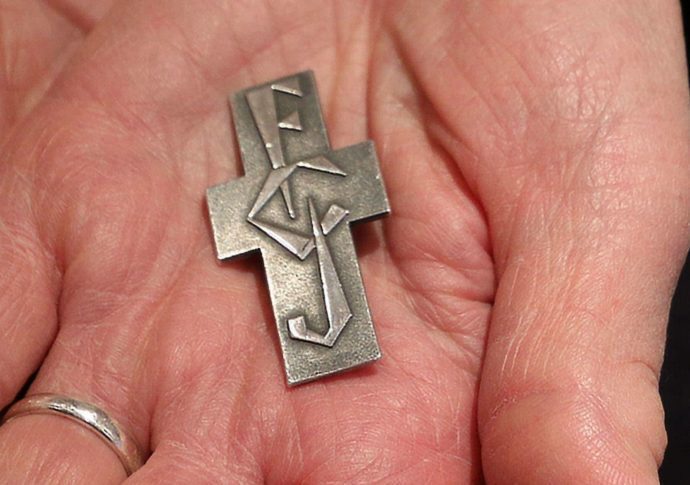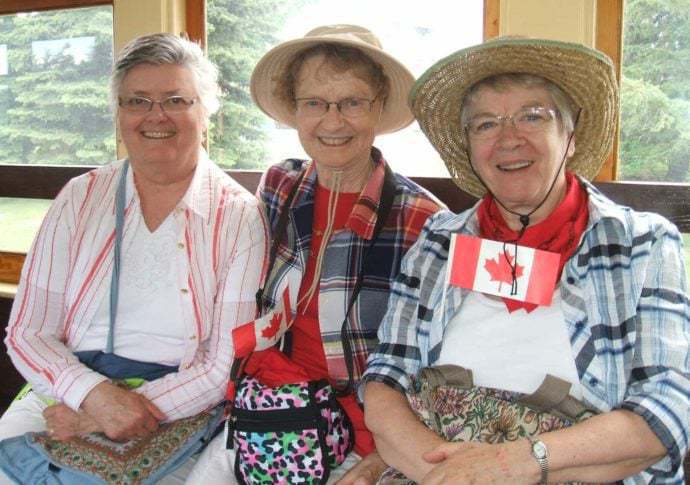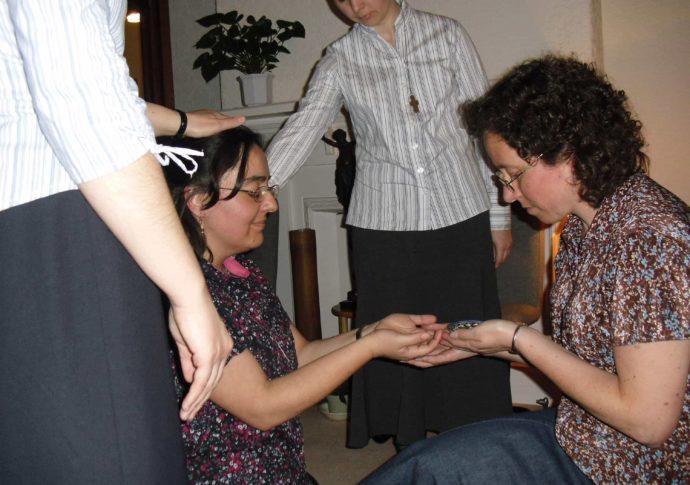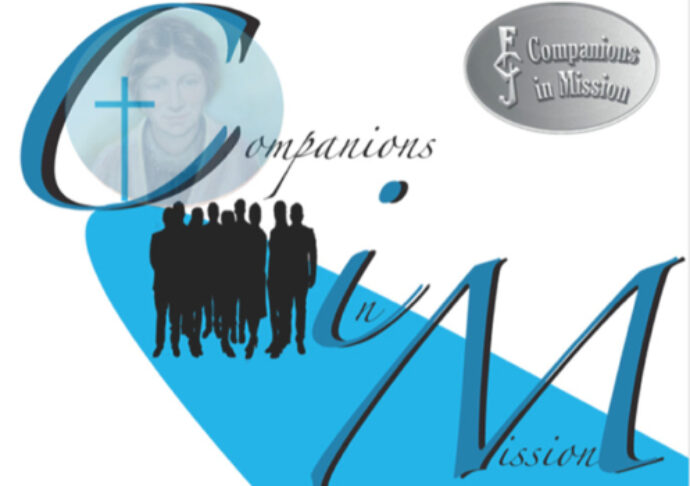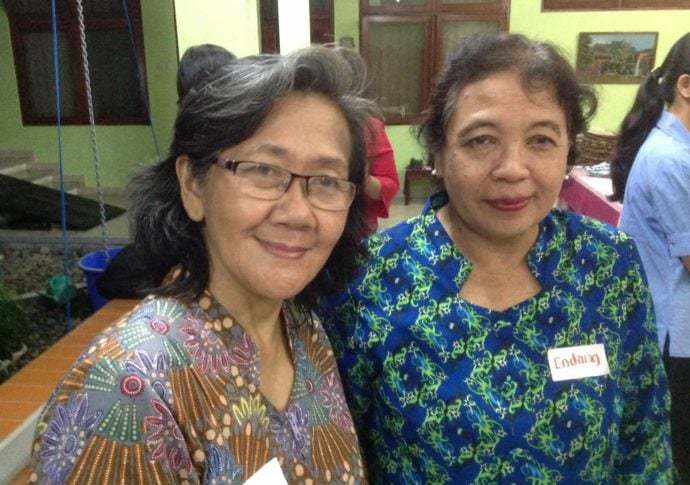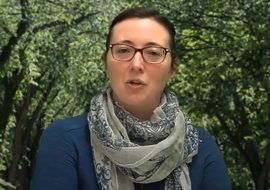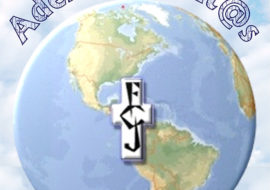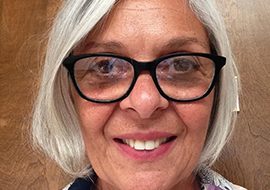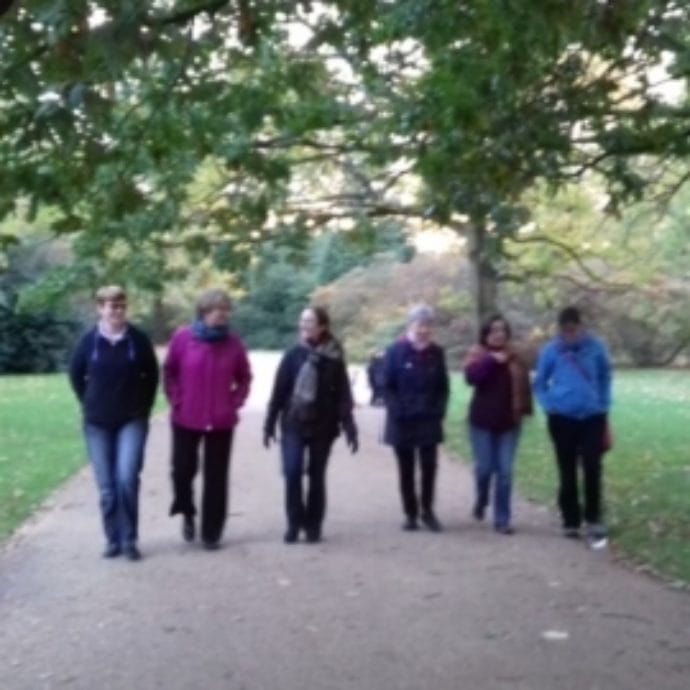A reflection by Sr Michelle fcJ
first appeared in the Weaving One Heart: Contemporary FCJ Voices blog
I’m a Religious Sister and I feel afraid. That’s right. I’ve said it.
I am a prayer-saying, Mass-attending (via livestream, anyway), Jesus-loving FCJ Sister, and yet I find myself living with a pulsating core of anxiety in my inner depths. It seems to delight in drawing my attention to the eerily quiet streets outside my bedroom window, the apprehension I experience regarding my changed role as a “virtual” teacher and the ever-increasing number of Covid-19 infected people in my province and beyond. “There’s no end in sight,” it likes to whisper to me. “Who knows when life will return to normal?”
I don’t like being afraid. Maybe you know some people who are the same? One pious Catholic recently shared with me that only people without religion or spirituality could truly be fearful of the pandemic. After all, “we know that there is more that comes afterwards,” he reminded me. And of course, he has a point. Christianity subscribes to the understanding that death is not the end, and so how could any Religious Sister fear the uncertainty that this virus has brought into our day to day existence? Right?
Besides, who could forget that the Scriptures remind us 365 times to not be afraid? In the Gospel of Matthew, Jesus took an arguably scolding tone with his disciples when they were fearful: Why are you afraid, you of little faith? I mean, if the disciples weren’t supposed to fear a raging storm on the sea, why should I fear the effects of a worldwide viral infection?
And yet, the reality is that I do feel fear. I’m informed enough to know that it’s unlikely I’d die of the virus myself, but that doesn’t mean that Covid-19 can’t massively impact the lives of the people around me. Denying the fear doesn’t make it disappear. Pretending that it doesn’t exist doesn’t mean it stops murmuring to me. And reminding myself that eternal life awaits me and my loved ones on the other side of suffering makes the anxiety no less alive inside me. So what to do?
For me, help with this question lies in the Book of Psalms. In Psalm 22, King David cries My God, my God, why have you forsaken me? Why are you so far from helping me, from the words of my groaning? O my God, I cry by day, but you do not answer; and by night, but find no rest. There is no denial of anxiety here. David touches his fear, he acknowledges it, he cries out to God for help. He suffers through the pain of his “unfaith” and his feelings of separation from the Creator. Who knows how long that sense of disconnection from God lasted for him? Days? Weeks? Only after he had suffered through this experience could he say later on in the same psalm: For [God] did not despise or abhor, the affliction of the afflicted; he did not hide his face from me, but heard when I cried to him.
Many of us are afraid during this difficult time of illness and uncertainty and separation. Our lives are turned upside down. People are becoming ill and some are dying. Others are losing their jobs and are concerned about losing the ability to look after their families. We are physically isolated from our social circles and many of our loved ones.
It doesn’t help anything to say that we shouldn’t be afraid, or to tell each other to stop being anxious. Instead, like David, we are called to acknowledge and touch this dread and to cry out to God in our pain. It is only through this honest awareness within ourselves and ongoing candid conversation with our God that we can develop compassion enough to engage with the anxieties of those around us.
Let us walk with each other authentically through our collective pain and fear, knowing that this pandemic will eventually end and the joys of the Resurrection really do await us on the other side of Covid-19.





